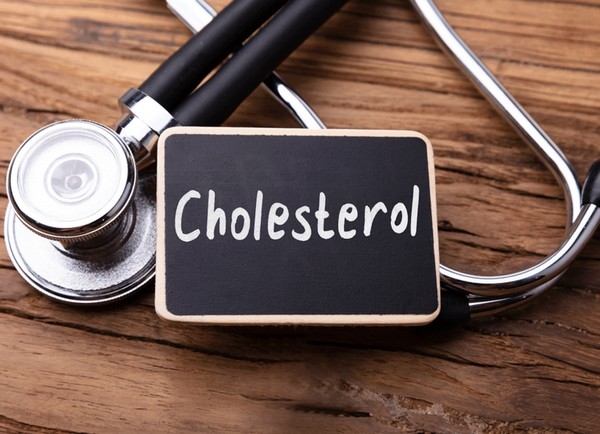Elevated cholesterol and blood lipid levels are contributing factors to heart disease. That’s important since cardiovascular disease kills more people than any other chronic condition. Ideally, you will take proactive steps to keep your cholesterol levels in a normal range, However, if they are elevated, you can take steps to bring those levels under control naturally. This can be done in conjunction with medications or as a primary method of treatment in mild cases.

1. Cut Out Trans Fats
Trans fats can occur naturally, but most of the ones you encounter are made in factories when hydrogen is added to vegetable oils to make them more solid and resistant to spoiling. As a result, you can often identify these types of fats by the fact that they are solid at room temperature. They are most commonly labeled as partially-hydrogenated vegetable oils. While they make last longer than non-hydrogenated oils, trans fats are bad news for your cholesterol levels. Not only do they raise “bad” LDL cholesterol levels, but they also lower the amount of “good” HDL cholesterol in the blood. Chooser healthier mono or polyunsaturated fats like avocado and olive oil instead.
2. Add a Supplement
There is a growing body of evidence supporting supplement use to help control cholesterol levels. Omega-3 fatty acids and psyllium fiber have long been touted for their heart benefits. A relative newcomer on the scene is Coenzyme Q10, which can be taken alone or in conjunction with other medications. In fact, experts are noticing that CoQ10 and statins can work together to improve numbers.
3. Exercise a Little More
People are becoming increasingly sedentary, and that is having a negative impact on health results. Exercise improves physical ad emotional health. Plus, it is a great way to keep weight levels in check and provides an extra boost to energy levels. The American Heart Association recommends that adults get at least 150 minutes of moderate-intensity exercise each week. That doesn’t mean you have to hit the gym, however. Physical activity can be things like walking, hiking, gardening or even do a deep cleaning of your house.
4. Switch to a Plant-Based Diet
The best diets for healthy eating tend to focus on eating plenty of fresh fruits and vegetables. In fact, diets that rely heavily on animal products tend to be higher in fats and calories than their plant-based counterparts. There is a big difference between vegetarianism and plant-based, however. You can start by cutting meat portion sizes down to two or three ounces at each meal, and make an effort to skip meat on at least one day each week. Try to limit red meat intake and instead opt for fish at least twice each week. Beans, whole grains and nuts are also excellent protein alternatives to meat.
5. Drink Alcohol in Moderation
Alcohol in moderation — less than two drinks per day —can help keep your cholesterol in check and may actually improve cardiovascular health. However, more than a couple of drinks and you negate those effects. Not only that, but you also inhibit your liver from functioning properly, meaning that cholesterol levels can quickly get out of hand.
6. Quit Smoking
Smoking is another vice that can negatively impact cardiovascular health. It does that in a few different ways, and one of them is by altering how the body absorbs cholesterol. Normally, the blood carries cholesterol to the liver. In smokers, however, there is a diminished ability to return cholesterol from the walls of blood vessels to the blood. This is a result of the effect of tobacco tar on the immune system.
7. Lose Weight
Excess weight is directly linked to elevated LDL levels. It appears that losing weight allows your body to better absorb dietary cholesterol so it does not have to produce an excess in the liver. Following a weight loss regimen can contribute to increases in HDL levels and a better overall blood lipid profile.
Elevated cholesterol can increase your risk of heart disease and chronic illness. Eating right, using supplements and practicing healthy lifestyle behaviors can help bring them under control. Always talk to your health care provider before making any changes.
